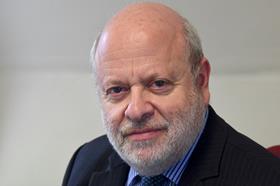Where does a lawyer’s primary responsibility lie: with the client or with the wider public interest?

It is a simple question with a simple answer. But from the arguments the question provoked at last week’s International Bar Association conference, it is clear not everyone agrees.
For solicitors, the preamble to the SRA’s principles gives us the answer: if there is a conflict between the principles, ‘those which safeguard the wider public interest (such as the rule of law, and public confidence in a trustworthy solicitors' profession and a safe and effective market for regulated legal services) take precedence over an individual client's interests’.
But some terms need to be clarified for the arguments to be understood.
First, the wider public interest as it relates to lawyers’ duties is restricted to those parts of the public interest which concern lawyers, such as the rule of law, the administration of justice and the duty to the court. Insofar as issues raise matters of wider public interest, for instance how many hospitals should be built or the percentage of our GDP spent on defence, they do not come between the lawyer and the client.
Second, the question of choosing between the two arises only if there is a conflict between them. In 99% of cases, following the client’s wishes is in the public interest, for all kinds of good reasons such as ensuring that our adversarial system works, and keeping the justice system ticking over properly. That is doubtless why many strongly believe that the client’s interest is primary.
Third, there is no right answer to what is in the public interest, even when considering the narrower parts that apply to us. For instance, what does it mean to say that something is or is not in accordance with the rule of law and the proper administration of justice (the duty to the court may be easier to define)? There is no manual that dictates in every circumstance how a lawyer should decide, nor should there be, if only because attitudes towards such concepts change over time.
As a former Secretary General of the Law Society, Sir Tommy Lund, wrote: ‘What is entirely proper for one generation may be slightly irregular for the succeeding generation and highly improper for the next.’ The proper procedure is for lawyers to consider all our responsibilities, including to the client and the relevant public interest, and come to a reasoned decision, case by case.
In my experience, lawyers’ codes of conduct in every jurisdiction, or nearly every jurisdiction, have similar rules, although expressed in different ways. At last week’s IBA conference, arguments raged, but whenever the equivalent of the SRA’s statement above was read out and explained, no-one had anything to say – because it is obviously true.
So what were the arguments?
Some felt that the statement was incendiary because it might embolden critics of the legal profession to say that lawyers should no longer be involved in, say, tax avoidance (much attacked as not being in the public interest), despite such work having been seen for a long time as a legitimate area of legal business. Others might say that lawyers should have no Russian clients in view of the invasion of Ukraine. In other words, the IBA adopting such a statement (the arguments arose in the first place because of a draft text proposed for adoption by the IBA) would be a gift to our critics.
However, this prioritisation of responsibilities does not deal with categories of work or categories of client. It is a case-by-case responsibility to weigh up all obligations, and if there is a conflict between them, to come down in a certain general direction, no more. There may be a very different answer in criminal cases (almost always in the public interest to follow the client’s wishes) than in civil.
On the other hand, some felt the statement was so obvious that it was not worth saying. What was really needed was guidance for how lawyers should behave in those circumstances where the conflict was likely to arise. But if a simple statement of the obvious provokes such passions, then consider how likely it is that more detailed IBA guidance in the area of SLAPPs or climate change will end in a quagmire of controversy – though its time will come.
The responsibility is no more than procedural. The lawyer must undertake an ethical evaluation for each case, and give prevalence to the defined parts of the public interest if there is a rare conflict of principles. The duty will be enforced (not by the IBA, which has no regulatory powers) following a complaint.
As mentioned, there will rarely be an obvious right answer. But if the lawyer can show the disciplinary authorities that he or she has come to a reasoned and reasonable decision within a spectrum of possibilities, there should be no problem.
Jonathan Goldsmith is Law Society Council member for EU & International, chair of the Law Society’s Policy & Regulatory Affairs Committee and a member of its board. All views expressed are personal and are not made in his capacity as a Law Society Council member, nor on behalf of the Law Society































4 Readers' comments